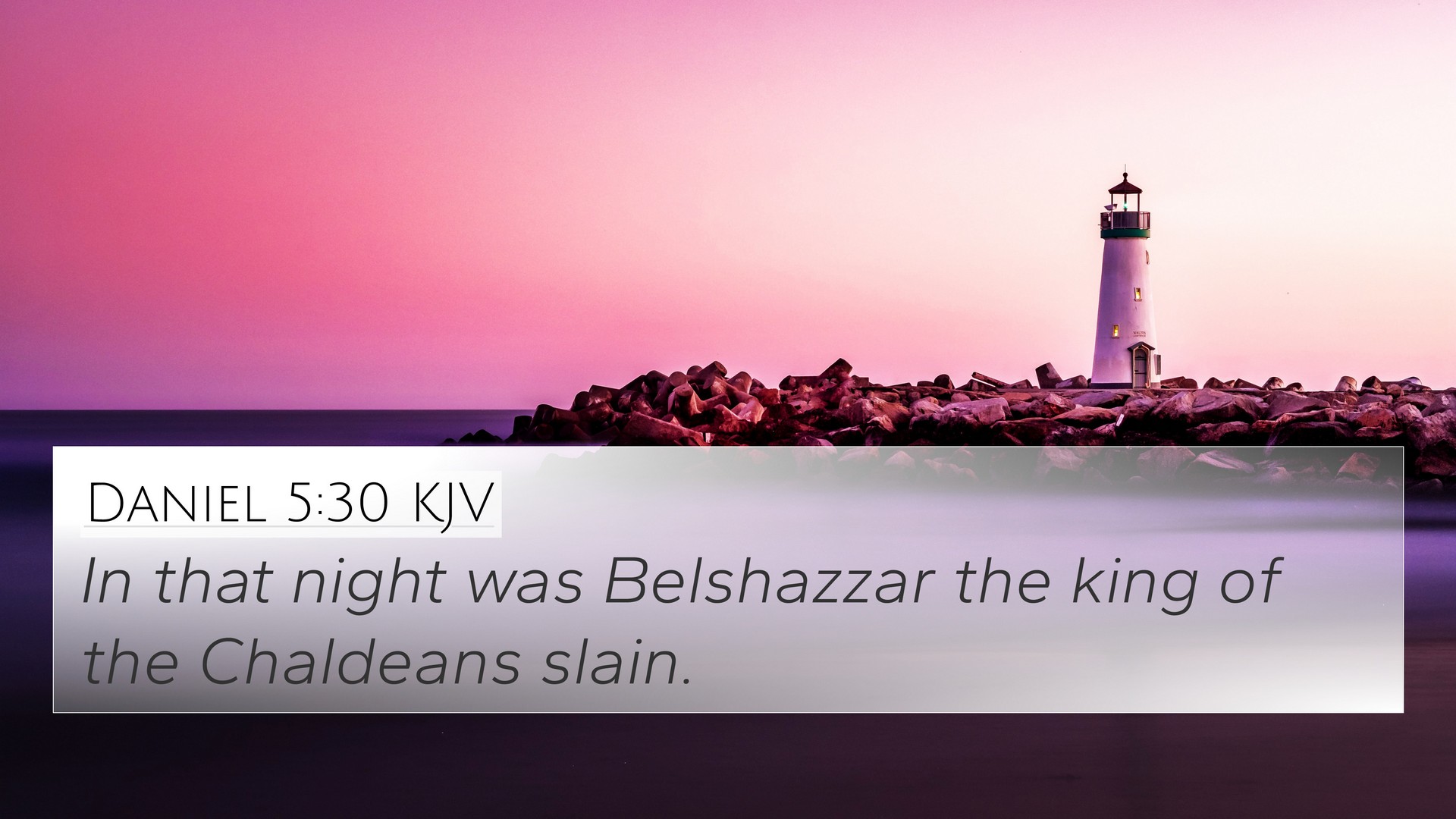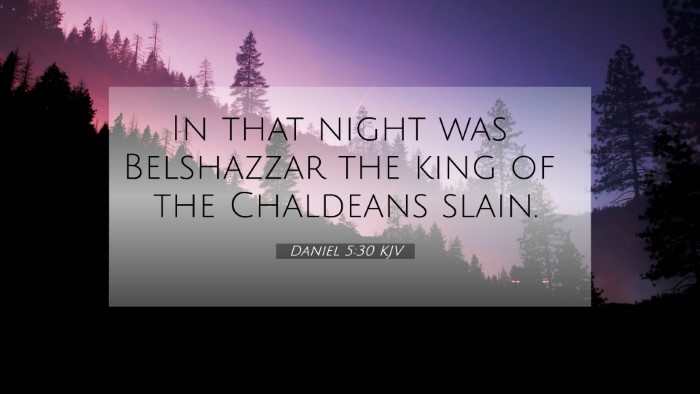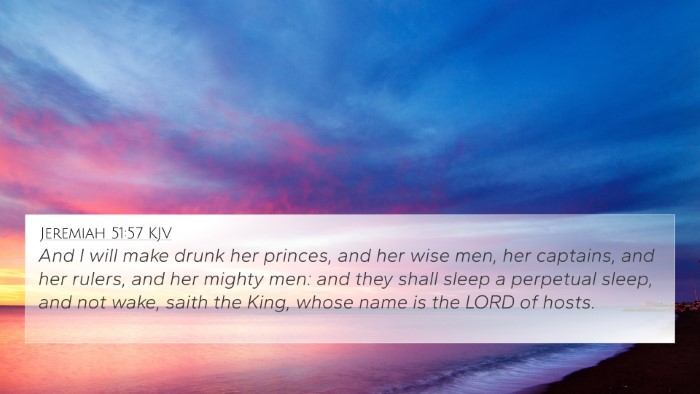Understanding Daniel 5:30
Daniel 5:30: "In that night was Belshazzar the king of the Chaldeans slain."
Summary and Meaning
Daniel 5:30 marks a significant turning point in the biblical narrative, illustrating God’s judgment
upon prideful leaders and the ultimate consequence of neglecting divine authority. This verse serves as
a poignant reminder of the transient nature of earthly power compared to God's sovereign will.
Commentary Insights
-
Matthew Henry: Henry emphasizes the theme of divine retribution, noting that
Belshazzar's fall was a direct result of his blasphemous actions during the feast, where he
desecrated sacred vessels. This act was seen as contempt against God, leading to his downfall and
the end of the Babylonian Empire.
-
Albert Barnes: Barnes discusses the historical context, highlighting that Belshazzar’s
reign was marked by arrogance and pride. He illustrates how the king's disregard for the warning signs,
represented by the writing on the wall (Daniel 5:25-28), ultimately led to a night of turmoil and
death, emphasizing the futility of human glory when opposed to God’s judgment.
-
Adam Clarke: Clarke provides a theological perspective, suggesting that this verse
encapsulates the broader biblical principle that “the wicked shall be turned into hell.”
He stresses that Belshazzar’s fate serves as a warning to all rulers and leaders about the
consequences of ignoring divine commandments and raising themselves against God’s sovereignty.
Bible Cross-References
The following verses relate directly to the themes present in Daniel 5:30:
- Isaiah 14:12-15: Discusses the fall of a prideful being, reflecting on the nature of
pride and its consequences.
- Jeremiah 50:29: Elaborates on Babylon’s impending judgment and the fate awaiting
its leaders.
- Proverbs 16:18: “Pride goes before destruction,” summarizing the moral lesson
of Daniel 5:30.
- Luke 1:52: Depicts God's reversal of fortunes for the proud and humble, resonating
with Belshazzar's story.
- Matthew 23:12: “Whoever exalts himself will be humbled,” reinforcing the biblical
principle of humility.
- 1 Peter 5:5: “God opposes the proud,” highlighting the theme of divine opposition to
pride.
- Revelation 18:2: Prophetic utterance against Babylon's fall, linking to the fate of
Belshazzar.
Thematic Connections
Daniel 5:30 illustrates several key themes that are pervasive throughout Scripture:
- The Sovereignty of God: The account highlights that all power ultimately belongs to
God, and those who rebel against Him will face judgment.
- The Consequences of Sin: Belshazzar's night of judgment serves as proof of the
direct consequences of sin and idolatry.
- Divine Judgment and Mercy: This theme runs through the Bible, showing God’s mercy
is available to those who repent, contrasting with the fate of the unrepentant.
Conclusions
Just as the fall of Belshazzar in Daniel 5:30 reveals profound truths about human dignity, pride, and
divine justice, it also serves as a beacon for modern readers. Reflecting on this scripture encourages
leaders and individuals alike to pursue humility and reverence for God's authority, recognizing the
frailty of human positions in contrast to divine judgment.
Further Exploration
For those eager to delve deeper into the connections between various biblical texts, consider engaging
with resources such as a Bible concordance or employing a cross-reference Bible study approach. Tools for
Bible cross-referencing can greatly enhance one’s understanding of the intricate web of scripture,
revealing thematic Bible verse connections through comprehensive analyses and studies.
Call to Action
To fully appreciate the implications of Daniel 5:30, readers are encouraged to explore its related
verses, cross-reference the themes presented in their personal studies, and see how biblical narratives
converse with one another across both the Old and New Testaments.









